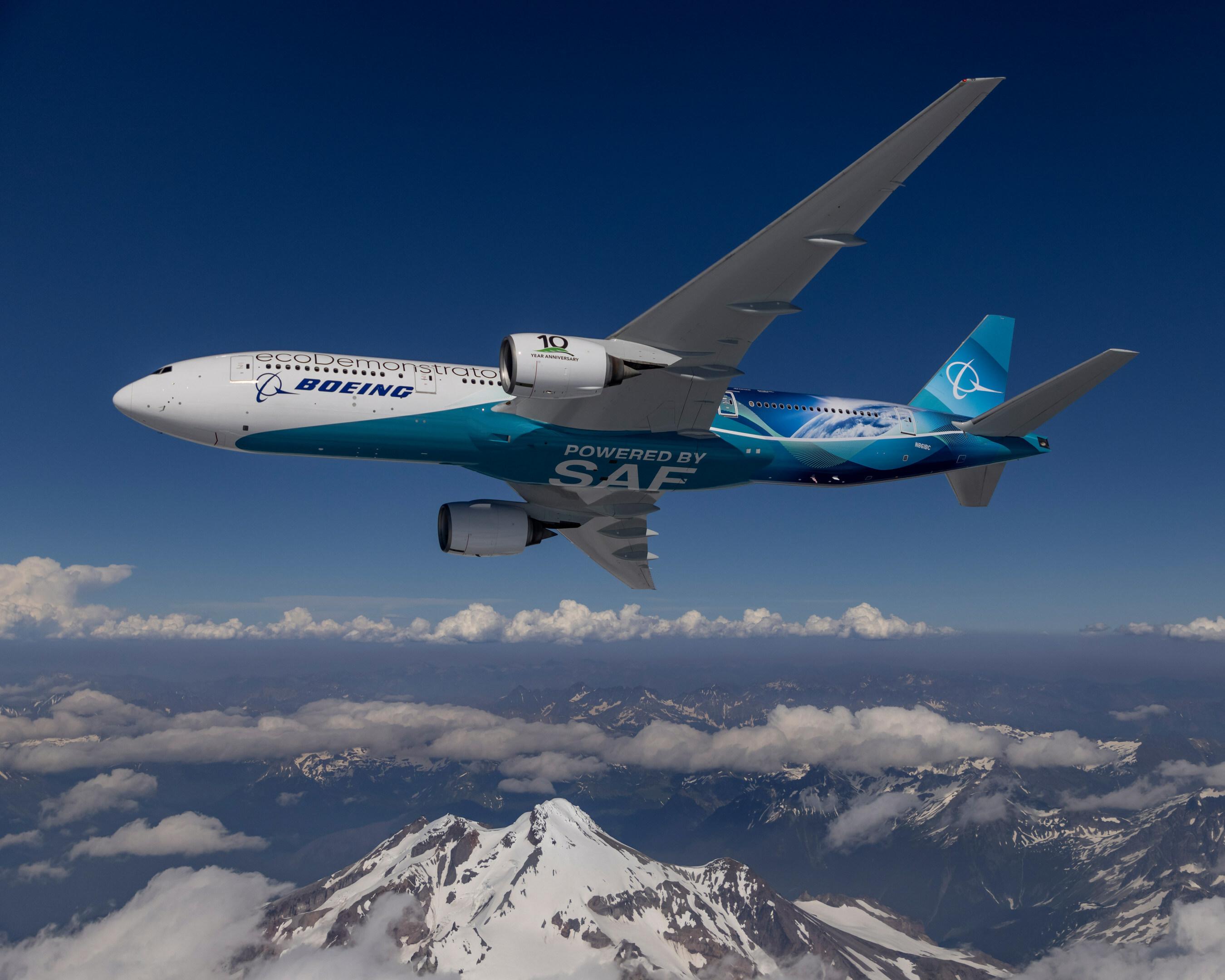Boeing Commercial CEO: Industry Must Stick Together To Meet 2050 Carbon Goal

PARIS–The global air transport industry’s commitment to be carbon neutral by 2050, a target made in late 2021, has been called into question, but Boeing believes this goal is still achievable if industry stakeholders pull together.
Earlier in June, a report by US consultancy firm Bain suggested that aviation may only reach 70% of its net zero ambitions by 2050. This view has been supported by other industry insiders, including Qatar Airways CEO Akbar Al Baker, who told CNN that the target is a “PR exercise.” At the IATA AGM in Istanbul in early June, there was considerable concern voiced about how to get the supply of sustainable aviation fuel (SAF) to meaningful quantities that would be a significant contributor to meeting those goals. IATA estimates that SAF will provide more than 60% of the means to the 2050 goal, but SAF supplies are still pitifully small and limited to only a few regions in the world.
Speaking at a media briefing on Sunday, the day before the opening of the Paris Air Show, Boeing Commercial Airplanes CEO Stan Deal told ATW that he is optimistic that net zero by 2050 is still possible, but only if all parties align.
“I think as an industry, we're committed to it,” he said. “Is every path crystal clear? No. Are the principal thrusts there? I believe so.”
Deal sees industry alignment, particularly around SAF, but hurdles remain which go beyond the aviation industry’s control. One of the many factors is regulatory support for SAF. Deal said that government policy remains the greatest challenge, but he believes the US is leading the way.
That in itself is raising concern among regulators in other parts of the world, who worry that US airlines will have access to more SAF at cheaper rates than airlines in countries where there are no government SAF incentives.
While Boeing has directly invested in some SAF projects, Deal said this was for research purposes to understand the barriers to SAF production and to encourage others to invest, rather than to become a SAF player in its own right.
“We don’t want to be the mega investor. We’re an airplane maker,” he said. “I think there's a shot to make it [to net zero by 2050]. The industry's got to stay together, though. That's how I see it.”
